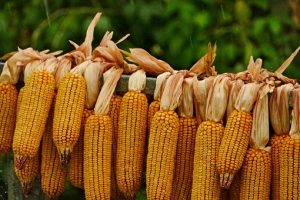The drought that hit Serbia this year caused large losses in corn production, with many farmers losing half to almost two-thirds of their crop. Concern among farmers is growing, especially due to climate change, which could significantly affect the amount of feed for livestock production in the future. Experts, including Dr. Željko Kaitović, scientific associate of the “Zemun Polje” Maize Institute, point out that climate change is becoming an inevitable factor in the development of new hybrids. Although no hybrid is completely resistant to drought, domestic hybrids have shown good adaptability to changes in climatic conditions, because they are developed taking into account the specific agro-ecological conditions of Serbia.
Kaitović notes that the development of new hybrids is a long-term process, which lasts about eight years, and that recently, when creating new varieties, more and more attention is paid to adaptation to climate change. Also, experts point to the problem of the high price of foreign seeds, which are significantly more expensive than domestic hybrid varieties. Petar Radić, agrarian adviser, confirms that there are many offers on the market, but also false claims about “cures” for all problems. He points out that this year’s drought particularly affected northern and central Banat, while Srem and western Bačka suffered somewhat less damage.
How to alleviate the drought and its effects? The profession says “hybrids”
The recommendations of experts to mitigate the negative effects of drought include the selection of earlier hybrids, which show better adaptability to drought conditions. Earlier sowing dates have also been shown to be effective in dry years. Ultimately, they allow plants to avoid extreme temperatures that occur later in the season. Also, the choice of FAO numbers is crucial. Lower numbers, such as FAO 300 and 400, indicate hybrids with a shorter growing season. In other words, this can result in less yield loss under drought conditions.

Although irrigation is mentioned as a potential solution, experts note that it is difficult to implement on a large scale. As they claim, it is difficult due to the lack of water and limited areas that can be irrigated. Alternative solutions exist, such as millet or sorghum. And although they can also be useful for animal feed, they are not represented enough in our country. Petar Radić warns that irrigation, if not applied properly, can lead to soil erosion and the creation of deserts. As he states, this is exactly what happened in past civilizations, and he recommends the use of manure as a natural fertilizer. In the end, the experts conclude that in the future, along with the adaptation of hybrids and the sowing date, constant monitoring of climatic conditions will be crucial in order to ensure stable yields.
Source: Farmer
Source: boljazemlja.com


